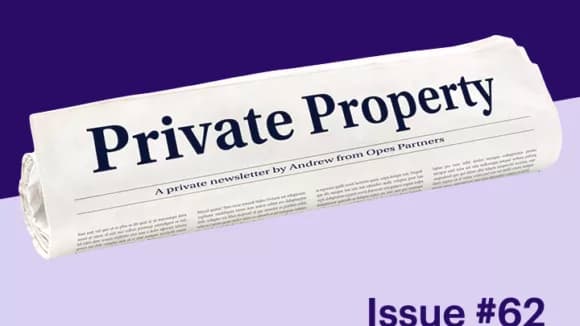
Property Investment
Build a $100k passive income plan in 20 minutes
You might be investing… but are you on track for $100k a year? Here’s how to check 👇
Property Investment
3 min read

Author: Andrew Nicol
Managing Director, 20+ Years' Experience Investing In Property, Author & Host
Reviewed by: Laine Moger
Journalist and Property Educator, holds a Bachelor of Communication (Honours) from Massey University.
A podcast listener emailed me this week. They asked about the potential impact of National’s new housing policy.
She worried that the new policy could impact house prices. And wondered if it was still a good idea to buy an investment property.
Here's what you need to know.
Wee disclaimer: As always, I'm not here to promote one political party (or another). But property is political. So, I comment on relevant political policies.
Two years ago, National helped Labour put in place a new policy. It's called the 'Medium Density Residential Standards' (MDRS).
This lets people build up to 3x3-storey-townhousess on their land. The game-changing part? You don't need resource consent.
There are some extra rules. Like, it only applies to the main centres, and you need to meet some standards.
But if you meet the standards, you don't need consent. (Full details here).
The aim is to cut through red tape. This saves time and lets builders build more properties, easing the housing shortage.
And now it’s in place; National's got a new policy.
The media focussed on National's desire to get rid of the 3x3 townhouse rule.
But that’s not the important part. The real change is they want to force councils to open up land for development. Lots of land. ‘30 years’ worth of land.
So, under the policy, councils must look at how fast their populations will grow over the next 3 decades.
Then they have to make enough land available to house that population growth. The clincher? They have to make that land available right away.
30 years of land, available now.
It's then up to the council to decide how that gets done.
So a city like Auckland could say: "We want more density". And let builders put up lots of multi-storey townhouses.
A smaller city like Palmerston North could say: "We don't want that." They could let people build lots of standalone houses instead.
That could be good news for developers and some property investors.
But, some investors will raise their eyebrows at the "30 years of land" part.
They might think: "Holy heck, does that mean house prices won't go up any more?"
That's where Christchurch provides a good case study.
The government put a fire under Christchurch City Council after the Canterbury earthquakes.
They forced the council to open up 30 years of land supply. Just like the new policy will do for everywhere else.
What happened? The number of properties built soared.
Of course, this wasn't just because there was more land available. The earthquake damaged lots of properties, so they needed to be rebuilt. But you get the picture
What happened to Christchurch property prices? Did they flat-line?
Nope.
There was a period of slow property price growth between 2016 and 2020.
But since then, Christchurch property prices have skyrocketed.
Since January 2020, they've gone up faster than Auckland, Lower Hutt and Dunedin. They've also gone up faster than the country as a whole.
So opening up 30 years of land could cause property prices to stall for a bit. But property prices stall in different markets all the time.
See how Gisborne property prices stalled for over 10 years before taking off.
Opening up more land isn't the only thing National wants to do. You need to look at the whole policy to see its effect.
They also want to tax property investors less by:
If implemented, investors will likely buy more properties. This increases demand and has the potential to push prices up.
So, on the whole, I wouldn't be too concerned about National's policy.
The extra supply has the potential to hold back price growth for a bit. But, then there's the increased demand from the tax changes.
And as we saw in Christchurch, you can have more land available and still see prices go up.
In my mind, the policy probably won't put a lid on house prices.
Managing Director, 20+ Years' Experience Investing In Property, Author & Host
Andrew Nicol, Managing Director at Opes Partners, is a seasoned financial adviser and property investment expert with 20+ years of experience. With 40 investment properties, he hosts the Property Academy Podcast, co-authored 'Wealth Plan' with Ed Mcknight, and has helped 1,894 Kiwis achieve financial security through property investment.
This article is for your general information. It’s not financial advice. See here for details about our Financial Advice Provider Disclosure. So Opes isn’t telling you what to do with your own money.
We’ve made every effort to make sure the information is accurate. But we occasionally get the odd fact wrong. Make sure you do your own research or talk to a financial adviser before making any investment decisions.
You might like to use us or another financial adviser